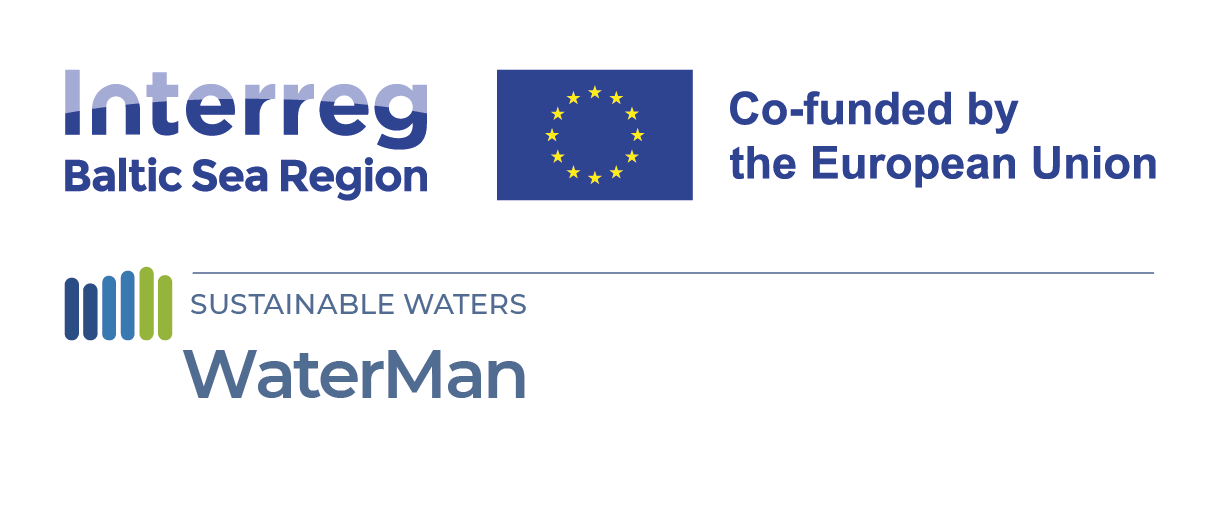
Climate change is a process that refers to long-term changes in the Earth’s climate. These changes include an increase in atmospheric temperature, changes in precipitation, changes in the distribution of ice and snow, rising sea levels, and other related effects. The main reason for these changes is the increased emission of greenhouse gases into the atmosphere by humanity, primarily as a result of the burning of fossil fuels such as coal, natural gas and oil. We are increasingly struggling with climate change such as droughts or floods, which means that the subject of water is a very important aspect. The WaterMan project promotes water reuse in the Baltic Sea region. It adds a new element to water management that can make water supply more climate resilient.
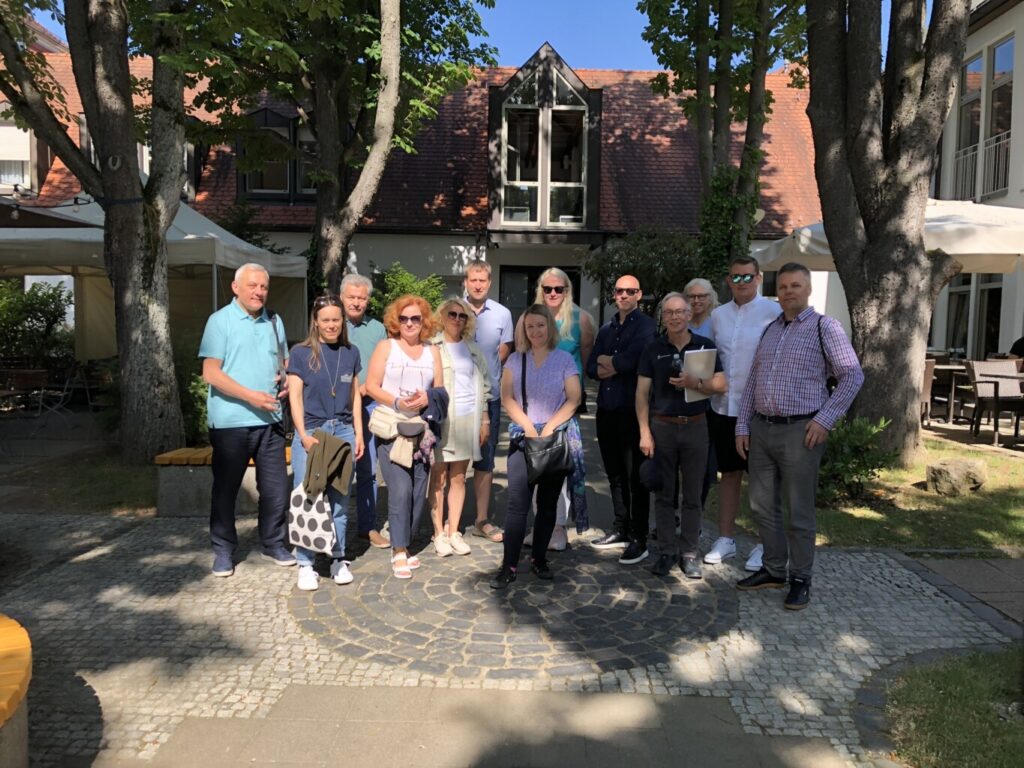
As part of the WaterMan project, on June 5-6, 2023, a meeting of project partners was held in Schweinfurt. Participants were greeted by the project leader, project manager and representative of the Berlin Center for Competence on Water, who was a host of the meeting.
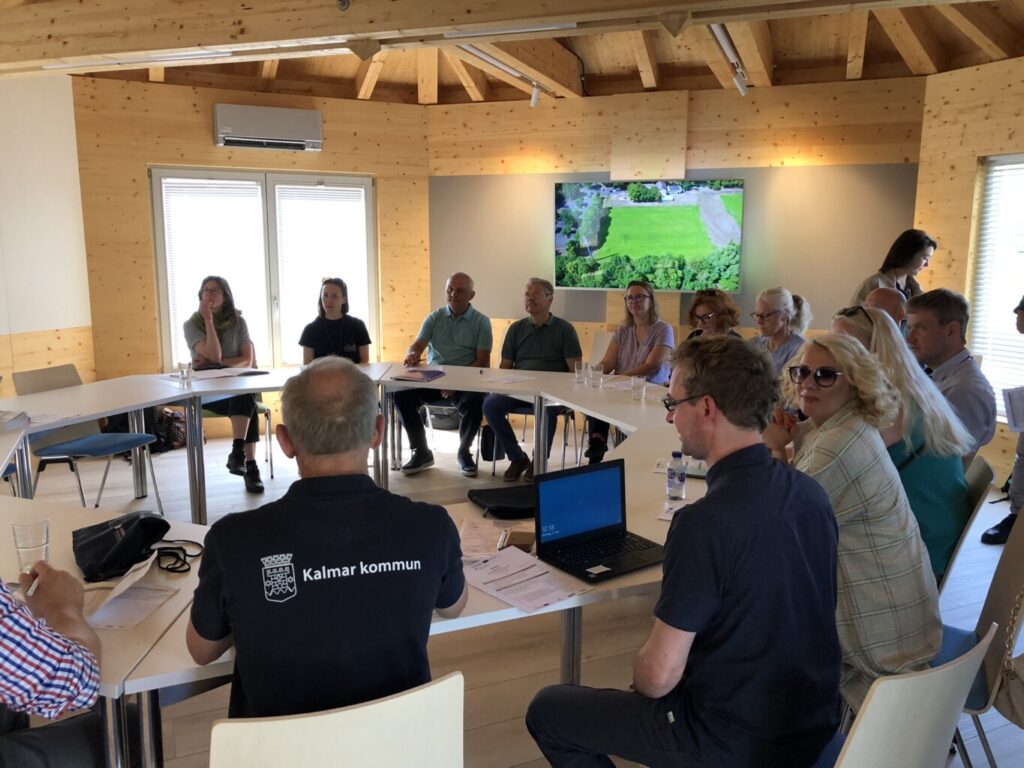
On the first day there was a study visit to the site of the Nutzwasser project. It is part of the special funding program of the Federal Ministry of Education and Research on the topic: “Water technology: reuse”. The aim is to develop new, highly flexible and needs-based management strategies for water reuse for urban and agricultural irrigation in a practical way. During the study visit the participants saw interesting solutions for drinking water treatment, e.g. using ozonation or UV light. Chemical products are often used to purify water, which can have a negative effect on other factors.
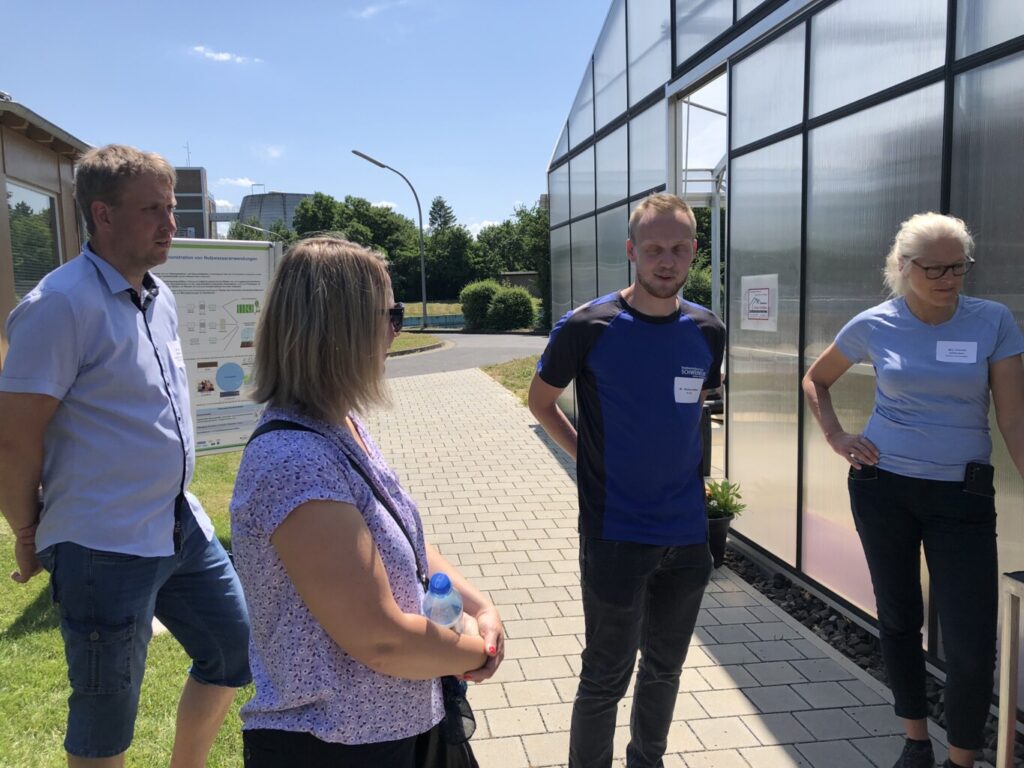
There was also a workshop during which where discussed technologies, legal frameworks and how to work with recipients. A representative of the NutzWasser project spoke about problems related to the mentality of people and their approach to water. There is less and less drinking water in the world, so we should ask ourselves: do we have to use tap water for everything, e.g. watering lawns or washing cars? They already started awareness-raising talks with the residents. They have a lot of manufacturing companies in their region that use water to cool their machines. Jörg Drewes, the project leader, talked about his experience and transitions in the project.
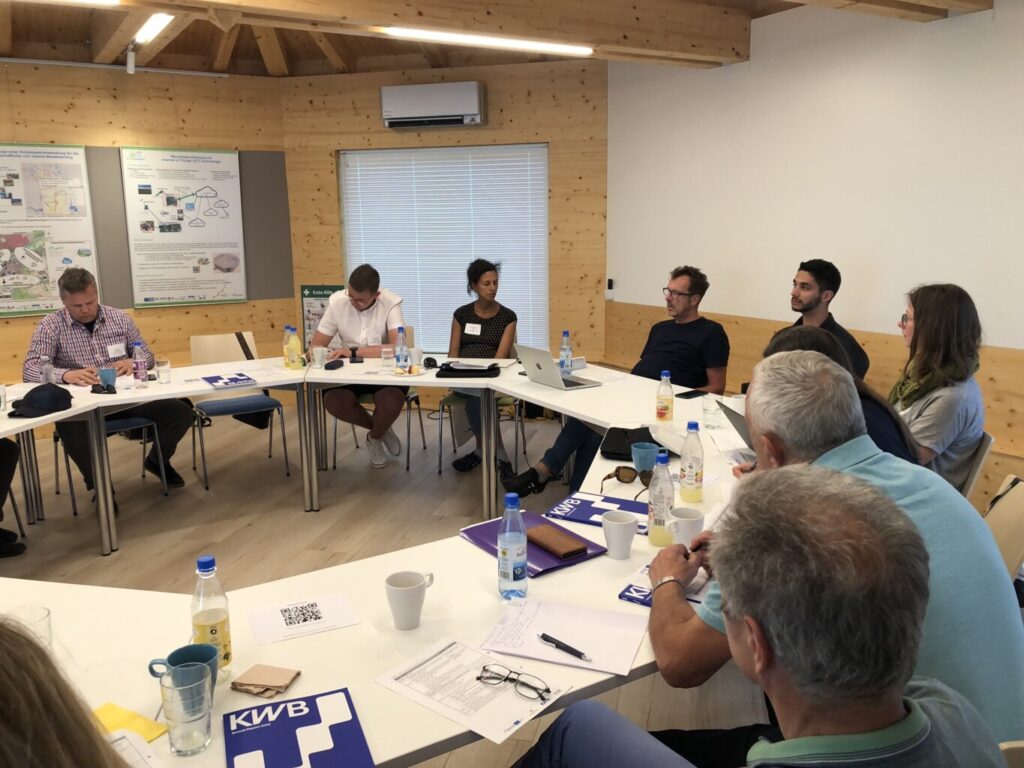
In the second part of the workshop, the host of the event KWB (Competence Center Water Berlin) gave a presentation related to the use of water. Topics covered included:
- basic definitions, reclaimed water sources and components
- water reuse options and uses, including potential stakeholders
- water treatment technologies for reuse (“fit for purpose”)
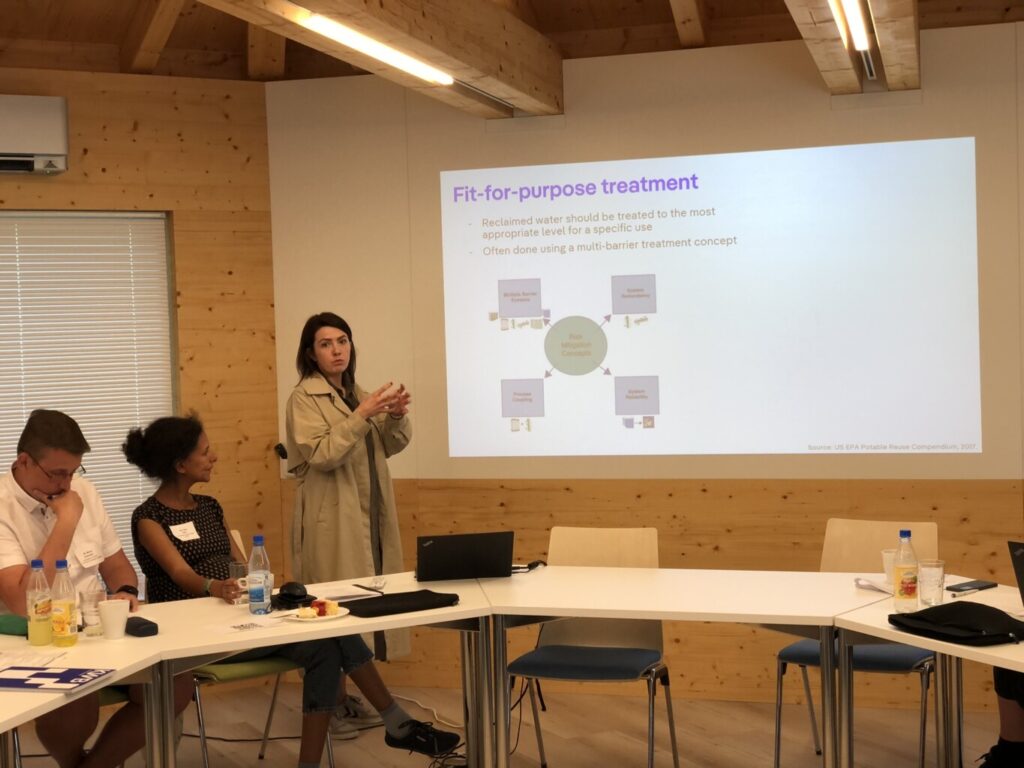
The second day of the meeting was devoted to part of the workshop, during which the focus was on water treatment methods and tools. The host of the meeting gave a presentation on risk management and risk assessment in the context of water reuse (with examples from the work of the Berlin Water Competence Centre). The presentation also included an introduction to risk, risk assessment and management according to the WHO and EU Standards for water quality and risk assessment and management according to. methods of quantitative and qualitative risk assessment. An interesting element of the presentation was the chemical and microbiological risk assessment.
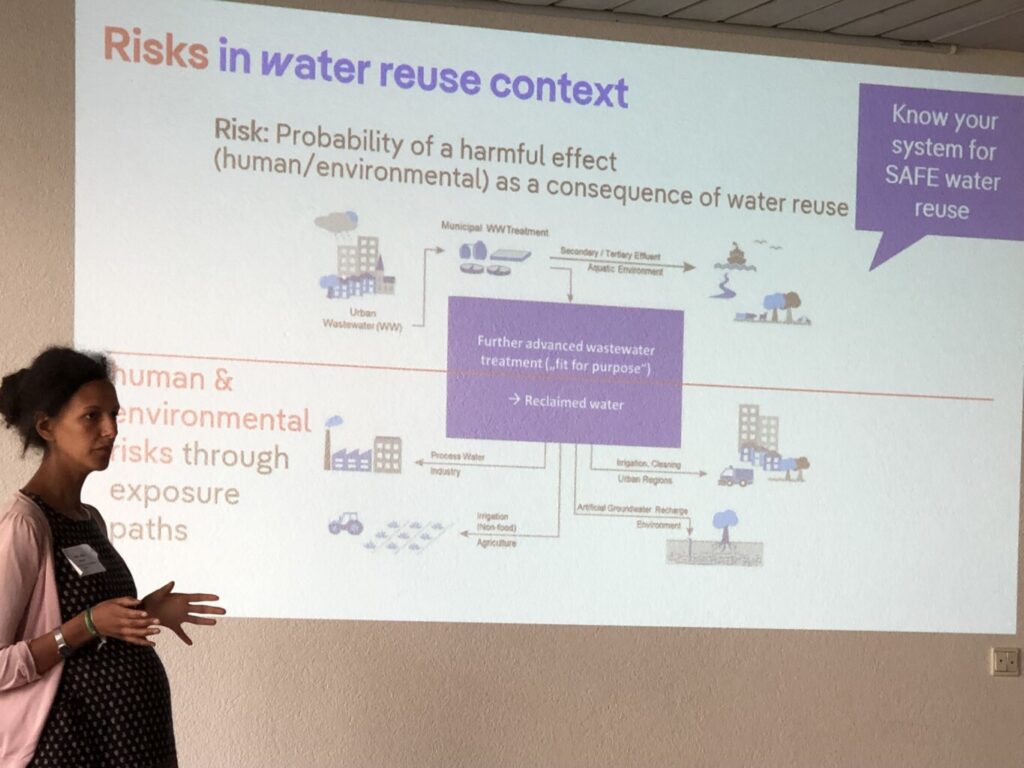
A Life Cycle Assessment (LCA) was presented as a decision support tool. It presents the options for choosing the best processing technology for a given purpose, including the benefits and burdens for the environment. A partner from the Berlin Competence Center presented examples of water and how they use the method and possibilities of LCA – Life Cycle Assessment.
Another presentation concerned the review of available tools for preparatory research and the introduction of free external tools to support decision-making in the context of water reuse (MultiReuse tool and Poseidon tool).
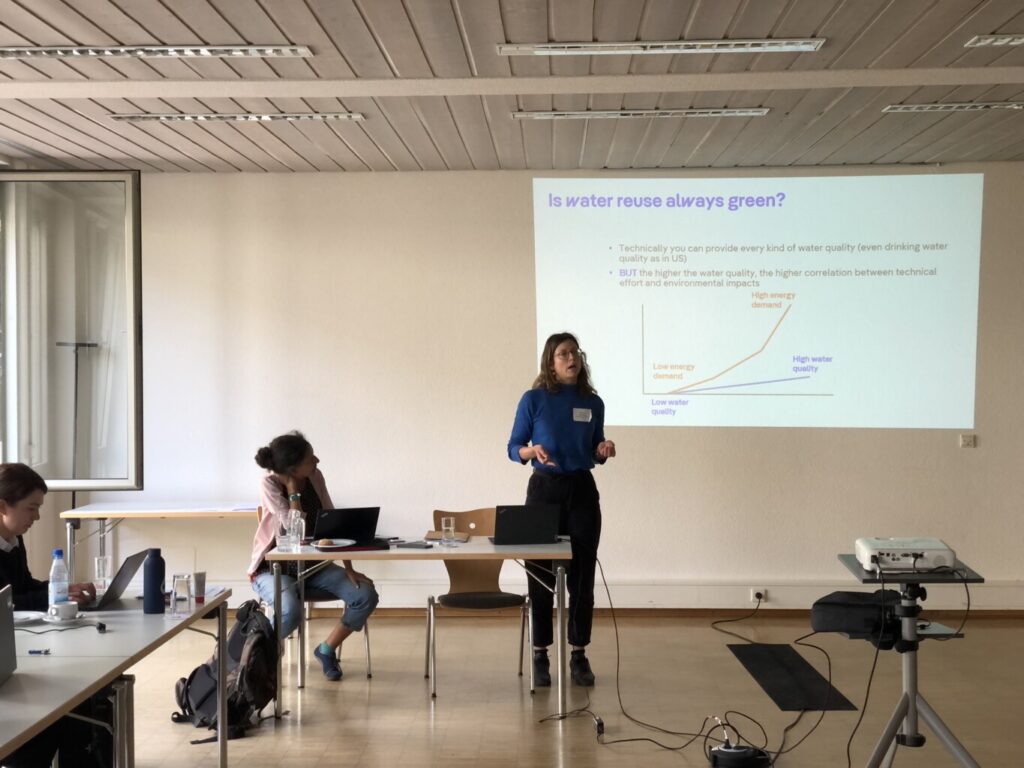
Partners from Poland (Gdańsk University of Technology) and Sweden (Kalmar Municipality) continued the discussion on tools supporting water reuse. The WaterMan project will use research tools such as:
- Extreme Weather Layer – a spatial planning system that reduces flood risk in urban areas
- GIS – determining the location of water retention
- Quantitative Microbial Risk Assessment (QMRA) – chemical risk assessment

The last part of the day was devoted to a summary of two days of workshop and a study visit. The project manager summarized the partners’ talks and each participant had the opportunity to comment on the event.
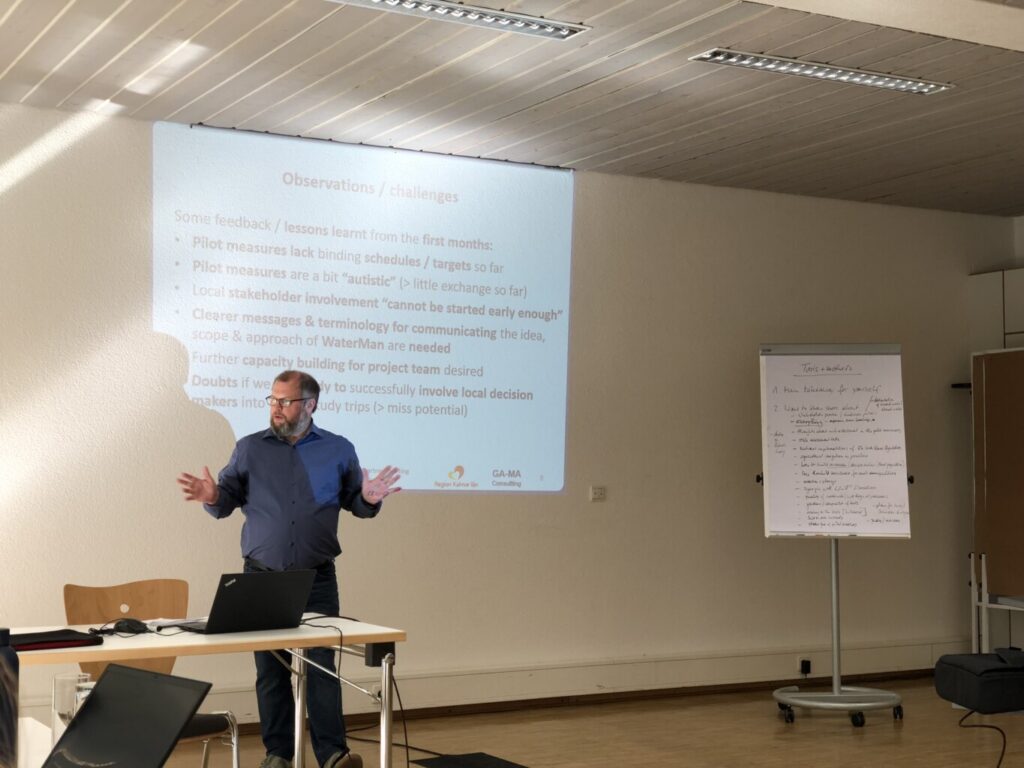
The available tools and methods of preparatory research during the pilot activities were discussed. Partners discussed the issues that can be explored in surveys. An important aspect pointed out by all the participants was the level of awareness of residents and authorities regarding water resources, their quality and methods of treating and saving drinking water. This will be an important aspect in the project, so that local and regional authorities increase their level of knowledge and awareness of the above-mentioned topic.
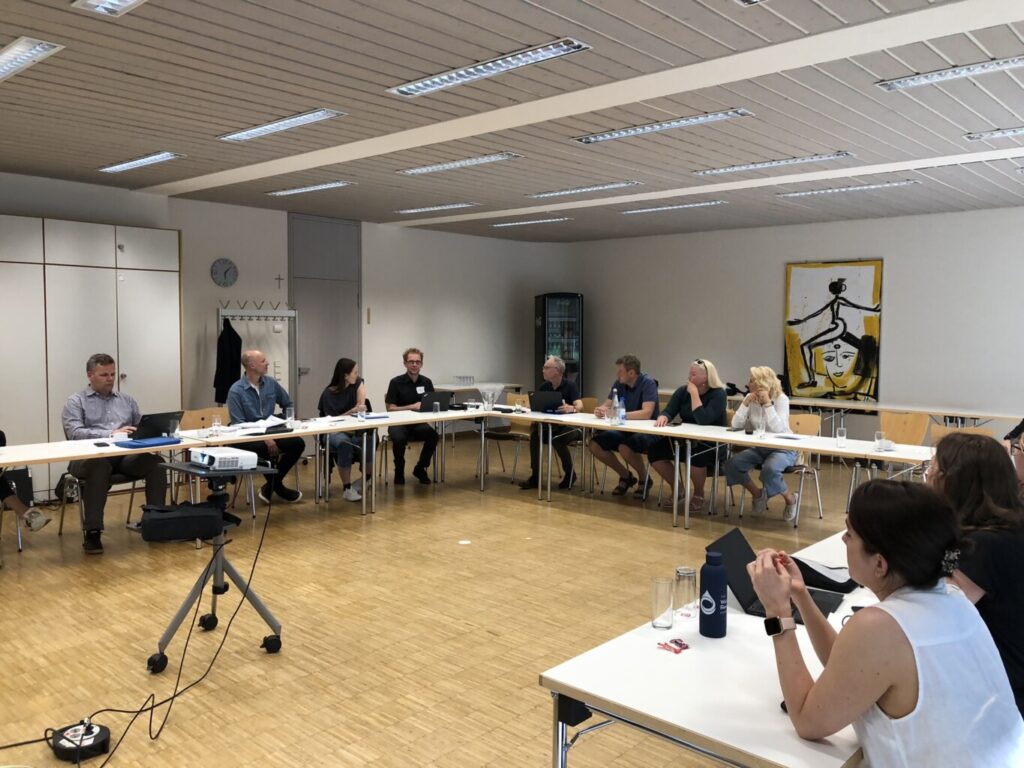
Finally, internal issues and the next steps were discussed. The next meetings and study visits were planned in such a way that everyone had the opportunity to enrich their experience and knowledge in the subject of water. Issues related to the promotion and dissemination of knowledge about the project and the activities carried out were mentioned.
Information prepared by:
Region Kalmar County, Regional development department, Sweden
Project manager, Communication manager Tobias Facchini;
Region Kalmar County tobias.facchini@regionkalmar.se, T: +46480448383

